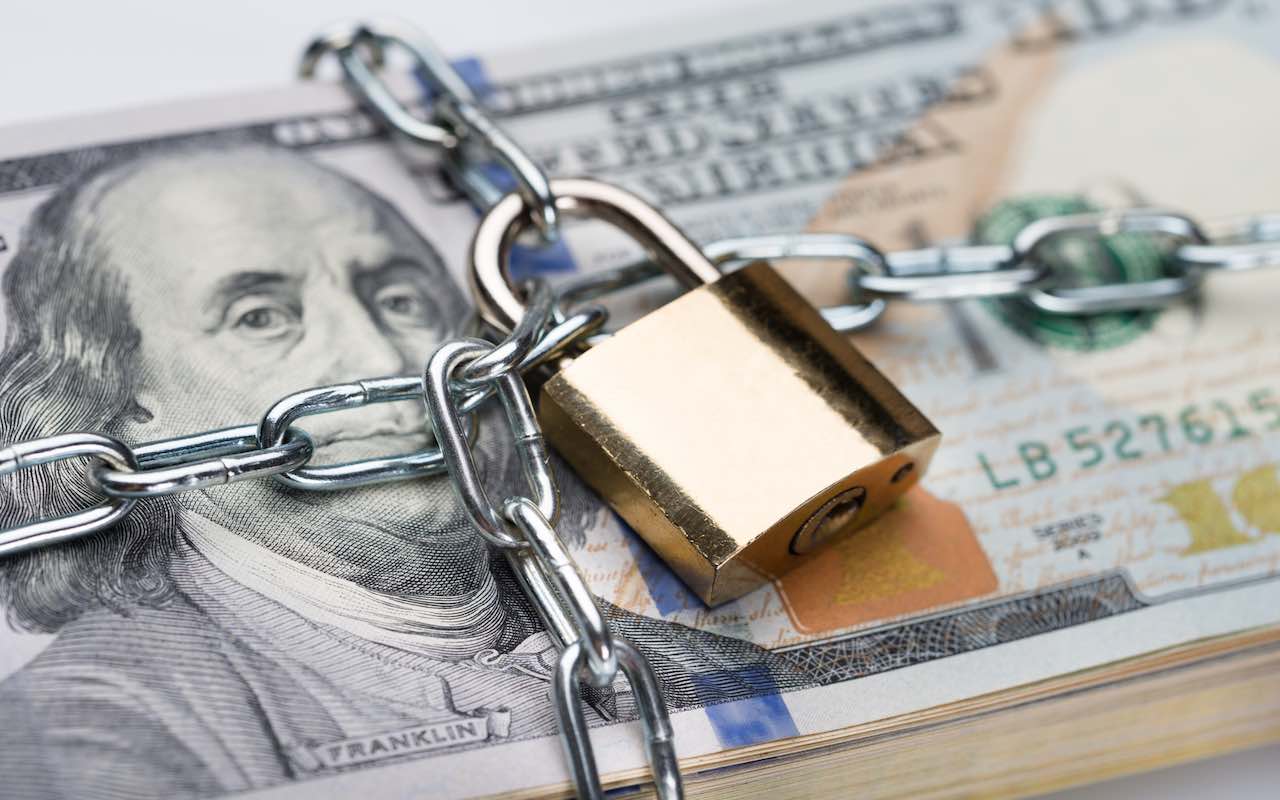7 Biggest Mistakes Investors Make
Is this the end of a seven-year bull market or the beginning of a prolonged bear market, or something in between?


Profit and prosper with the best of Kiplinger's advice on investing, taxes, retirement, personal finance and much more. Delivered daily. Enter your email in the box and click Sign Me Up.
You are now subscribed
Your newsletter sign-up was successful
Want to add more newsletters?

Delivered daily
Kiplinger Today
Profit and prosper with the best of Kiplinger's advice on investing, taxes, retirement, personal finance and much more delivered daily. Smart money moves start here.

Sent five days a week
Kiplinger A Step Ahead
Get practical help to make better financial decisions in your everyday life, from spending to savings on top deals.

Delivered daily
Kiplinger Closing Bell
Get today's biggest financial and investing headlines delivered to your inbox every day the U.S. stock market is open.

Sent twice a week
Kiplinger Adviser Intel
Financial pros across the country share best practices and fresh tactics to preserve and grow your wealth.

Delivered weekly
Kiplinger Tax Tips
Trim your federal and state tax bills with practical tax-planning and tax-cutting strategies.

Sent twice a week
Kiplinger Retirement Tips
Your twice-a-week guide to planning and enjoying a financially secure and richly rewarding retirement

Sent bimonthly.
Kiplinger Adviser Angle
Insights for advisers, wealth managers and other financial professionals.

Sent twice a week
Kiplinger Investing Weekly
Your twice-a-week roundup of promising stocks, funds, companies and industries you should consider, ones you should avoid, and why.

Sent weekly for six weeks
Kiplinger Invest for Retirement
Your step-by-step six-part series on how to invest for retirement, from devising a successful strategy to exactly which investments to choose.
Is this the end of a seven-year bull market or the beginning of a prolonged bear market, or something in between? Truth is, nobody knows for sure. The vast opportunities for creating wealth by investing in equities come with plenty of risks. So take a deep breath and remember—the stock market has yielded an average 8%-10% return annually over the last 114 years. In 2013, the Dow Jones industrial average gained almost 30%. In 2015, it lost 2.2%. This year began with frightening drops of 5%-15% in markets globally.
Don’t let a summer of low market volatility lull you into complacency. Here are the seven biggest mistakes investors make. Avoid these costly missteps and chances are you can profit handsomely for years to come, even if you are retired or approaching retirement.

You Panic-Sell
Wall Street can be a scary place when the bear is loose, even for the smartest of investors. This is not new. Three centuries ago, as scientist Isaac Newton lost a fortune in the South Sea Company stock collapse, he lamented, "I can calculate the movement of the stars, but not the madness of men." When $1.04 trillion disappears from the S&P 500 in 12 days, as happened in early January, fools rush out of the market, sell off their depressed assets and lose their shirts, just like Newton.
- Emotion is your worst enemy. Remember, all bull and bear markets have one thing in common—they always come to an end. Some recent history: The Dow lost a frightening 53% of its value in the 2008-2009 meltdown. But within a four-year period, the Dow regained it all, then rose an additional 28%, from a low of 6,507 to a then-high of 18,200 on February 24, 2015. Now the Dow is back above 18,000 again. Patient investors were big winners in the run-up.
So keep your eye on your long-term plan. “If you aren’t willing to own a stock for 10 years, don’t even think of owning it for 10 minutes,” as Warren Buffett once put it.

You Quit Buying
Buying stocks in bear markets may be the hardest thing for most investors to do because it is so counterintuitive. But if you have cash, you can score some real bargains that others who are fully invested cannot. Snapping up quality stocks you know are being dragged down in the froth of a downturn can unlock future wealth. Make a list of investments that you’d like to own and the prices you’re willing to pay, says Bryan Koslow, a registered investment adviser for New Jersey-based Clarus Financial. When the market sells off and a stock on your list falls to the right price, bingo. “Your list will help you stay disciplined,” says Koslow.
For more, read 5 Tactics That Help Patient Investors Prosper.

You Have Too Much of Your Portfolio In One Asset
There's no such thing as the perfect investment. Stocks carry risks. Funds that bundle stocks can lessen the risk, cushioning sharp downturns but muting spikes as well. And bonds can offset stock losses in the short term, but over long periods, bond returns trail the returns of the stock market.
Having the right mix is especially important to retirees, who should have an investment horizon long enough to weather this storm. Shifting too much money to bonds or under the mattress is no strategy. You should stay diversified, no matter how scary the market gets. T. Rowe Price recommends new retirees keep 40%-60% of their assets in stocks because they hold up to inflation better than bonds and cash. Even 90-year-olds should keep at least 20% of their assets in stocks.

You Fail to Rebalance Your Portfolio Regularly
Every investor is subject to the whims of the market. Here's one way to profit from the inevitable ups and downs. Let's say your portfolio is made up of mutual funds. At the end of each year—better yet, every quarter—consider how much you have in each fund. Then target new money to the funds that have done poorly. Many retirement plans offer automatic rebalancing, so you don’t have to worry about it. Rebalancing keeps your portfolio diversified by preventing your wealth from becoming concentrated in a small number of investments.
This disciplined approach to investing helps ensure that you're buying lower and selling higher, which certainly beats the buy-high-sell-low trap that snares many investors. "Rebalancing takes guts—it's hard to reward losers—but it works," says Kiplinger.com columnist Steven Goldberg.

You Trade Too Frequently
Making trades based on minute-to-minute monitoring of cable business news or chat rooms for day traders isn't investing; it's speculation. And speculation is a surefire recipe for inferior returns. Yes, some people make money on the spot. But over the long term, does anybody ever really beat the house in Vegas?
True investing relies on contributing regular amounts at regular intervals, in both rising and falling markets, to a thoroughly researched, diversified portfolio of stocks, funds and bonds, says our editor-in-chief, Knight Kiplinger. Real investors give their assets a chance to perform over years, not minutes, adjusting allocations quarterly or annually. How long should you stick with an investment? Let Warren Buffett be your guide: "When we own portions of outstanding businesses with outstanding managements," he wrote in a now-famous 1988 chairman's letter to Berkshire Hathaway shareholders, "our favorite holding period is forever."

You Only Live Once. Splurge!
Not so fast. There are those who see a prolonged bear market ahead. There are those who see a bull market for the next 15-20 years. Let’s focus on the rest of this year for a moment. Until the uncertainty clears about the U.S. presidential election, the bearish mood on Wall Street, and the interest rate outlook, it might be a good time to take stock of the future and scale back on withdrawals from your portfolio to meet living expenses.
- Here’s how to make your retirement savings last a lifetime.

You Miscalculate a Fund's Tax Basis
The tax basis of an investment helps determine how much you'll owe in taxes when you sell. Generally speaking, the tax basis, also referred to as the cost basis, is the purchase price. Subtract that from what you sell the investment for, and the difference is the amount upon which you'll be taxed. In the case of mutual funds, if like most investors you use your dividends to automatically buy extra shares, remember that each reinvestment increases your tax basis in the fund. That, in turn, reduces the taxable capital gain (or increases the tax-saving loss) when you redeem shares. Forgetting to include reinvested dividends in your basis results in double taxation of the dividends—once when they are paid out and immediately reinvested, and later when they're included in the proceeds of the sale.
This important calculation can save you a bundle. Former IRS commissioner Fred Goldberg once told Kiplinger's editorial director Kevin McCormally that missing this break costs millions of taxpayers a lot in overpaid taxes. If you're not sure what your basis is, ask the fund company for help. Funds often report to investors the tax basis of shares redeemed during the year. In fact, for the sale of shares purchased in 2012 and later years, funds must report the basis to investors and to the IRS.
For more, read The Most-Overlooked Tax Deductions.
Profit and prosper with the best of Kiplinger's advice on investing, taxes, retirement, personal finance and much more. Delivered daily. Enter your email in the box and click Sign Me Up.

-
 Dow Leads in Mixed Session on Amgen Earnings: Stock Market Today
Dow Leads in Mixed Session on Amgen Earnings: Stock Market TodayThe rest of Wall Street struggled as Advanced Micro Devices earnings caused a chip-stock sell-off.
-
 How to Watch the 2026 Winter Olympics Without Overpaying
How to Watch the 2026 Winter Olympics Without OverpayingHere’s how to stream the 2026 Winter Olympics live, including low-cost viewing options, Peacock access and ways to catch your favorite athletes and events from anywhere.
-
 Here’s How to Stream the Super Bowl for Less
Here’s How to Stream the Super Bowl for LessWe'll show you the least expensive ways to stream football's biggest event.
-
 Dow Leads in Mixed Session on Amgen Earnings: Stock Market Today
Dow Leads in Mixed Session on Amgen Earnings: Stock Market TodayThe rest of Wall Street struggled as Advanced Micro Devices earnings caused a chip-stock sell-off.
-
 Nasdaq Slides 1.4% on Big Tech Questions: Stock Market Today
Nasdaq Slides 1.4% on Big Tech Questions: Stock Market TodayPalantir Technologies proves at least one publicly traded company can spend a lot of money on AI and make a lot of money on AI.
-
 Fed Vibes Lift Stocks, Dow Up 515 Points: Stock Market Today
Fed Vibes Lift Stocks, Dow Up 515 Points: Stock Market TodayIncoming economic data, including the January jobs report, has been delayed again by another federal government shutdown.
-
 Stocks Close Down as Gold, Silver Spiral: Stock Market Today
Stocks Close Down as Gold, Silver Spiral: Stock Market TodayA "long-overdue correction" temporarily halted a massive rally in gold and silver, while the Dow took a hit from negative reactions to blue-chip earnings.
-
 Nasdaq Drops 172 Points on MSFT AI Spend: Stock Market Today
Nasdaq Drops 172 Points on MSFT AI Spend: Stock Market TodayMicrosoft, Meta Platforms and a mid-cap energy stock have a lot to say about the state of the AI revolution today.
-
 S&P 500 Tops 7,000, Fed Pauses Rate Cuts: Stock Market Today
S&P 500 Tops 7,000, Fed Pauses Rate Cuts: Stock Market TodayInvestors, traders and speculators will probably have to wait until after Jerome Powell steps down for the next Fed rate cut.
-
 S&P 500 Hits New High Before Big Tech Earnings, Fed: Stock Market Today
S&P 500 Hits New High Before Big Tech Earnings, Fed: Stock Market TodayThe tech-heavy Nasdaq also shone in Tuesday's session, while UnitedHealth dragged on the blue-chip Dow Jones Industrial Average.
-
 Dow Rises 313 Points to Begin a Big Week: Stock Market Today
Dow Rises 313 Points to Begin a Big Week: Stock Market TodayThe S&P 500 is within 50 points of crossing 7,000 for the first time, and Papa Dow is lurking just below its own new all-time high.
